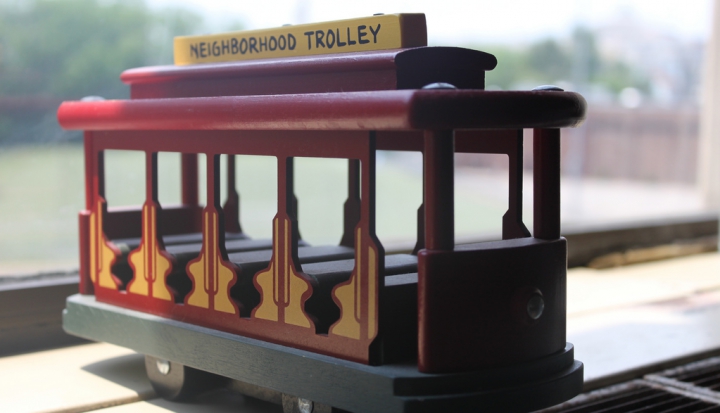Fred McFeely Rogers knew the value of television the first time he saw it. He had just returned from college in 1951 to his hometown of Latrobe, Pennsylvania when he turned on his parents’ new set. “I saw people throwing pies in people’s faces,” and he knew there had to be a better way to use TV.
Rogers took his degree in music composition from Rollins College in Florida to NBC in New York, where he worked on a variety of programs for two years.
In 1953 he returned to Pittsburgh to WQED, the nation’s first community-supported public television station, to work as a producer, musician, and puppeteer on a live, one-hour show called The Children’s Corner. “My friends at NBC said I was crazy,” Rogers says.
In 1966 he developed the half-hour Mister Rogers’ Neighborhood, which is the longest-running children’s program on public television. For the past 30 years, Mister Rogers, 68, has been helping children understand their feelings and develop self-esteem.
“I’ve had so many wonderful experiences in my life—what a blessing that is. That doesn’t mean that every minute of the time was absolute joy,” he says. “In anybody’s work, there are stresses. The important thing is to build community.”
Rogers, an author, pianist, and composer, has written the music and scripts and worked the puppets on the more than 600 shows produced by Family Communications Inc. This spring, Mister Rogers’ Neighborhood aired an entire week of shows about work.
“We talked about some of the feelings children have when their parents go to work,” Rogers says. His puppets, King Friday XII and Queen Sara, worked while their son, Prince Tuesday, had a day and night sitter. When they returned, they expected their son to be happy to see them. Instead, the prince was upset that they had been away so much. “It is important for children to realize that there is such a thing as ambivalence,” Rogers says.
The father of two sons and grandfather of two boys, Rogers says one of the greatest lessons parents can teach children about work is to enjoy what they do. Many of his programs feature people doing jobs. His “work” programs include footage of people making things such as peanut butter, bass violins, and stuffed bears. “We like to present a wide variety of people doing things they love so the children at home can catch their enthusiasm,” he says. “That’s one of the best gifts we can give children—our honest enthusiasm for what we do. Your children want to be like you.”
Rogers says his love for work began with his Grandfather McFeely, who manufactured bricks until he was in his 70s. After selling the small business, he bought a farm and 5,000 chickens. “After a while, he decided to sell all the chickens and got hogs,” Rogers says. “Later, he got a little coal mine. I got the idea that going to work was really fun from him.”
“Whenever you’re feeling low, just remember your work—be grateful for your work and do it well,” Rogers says. “Work is one of the most satisfying things that a person can do if he or she is interested.”
This article was originally published in the September 1996 issue of U.S. Catholic.
Image: Flickr cc via Matt Bargar













Add comment